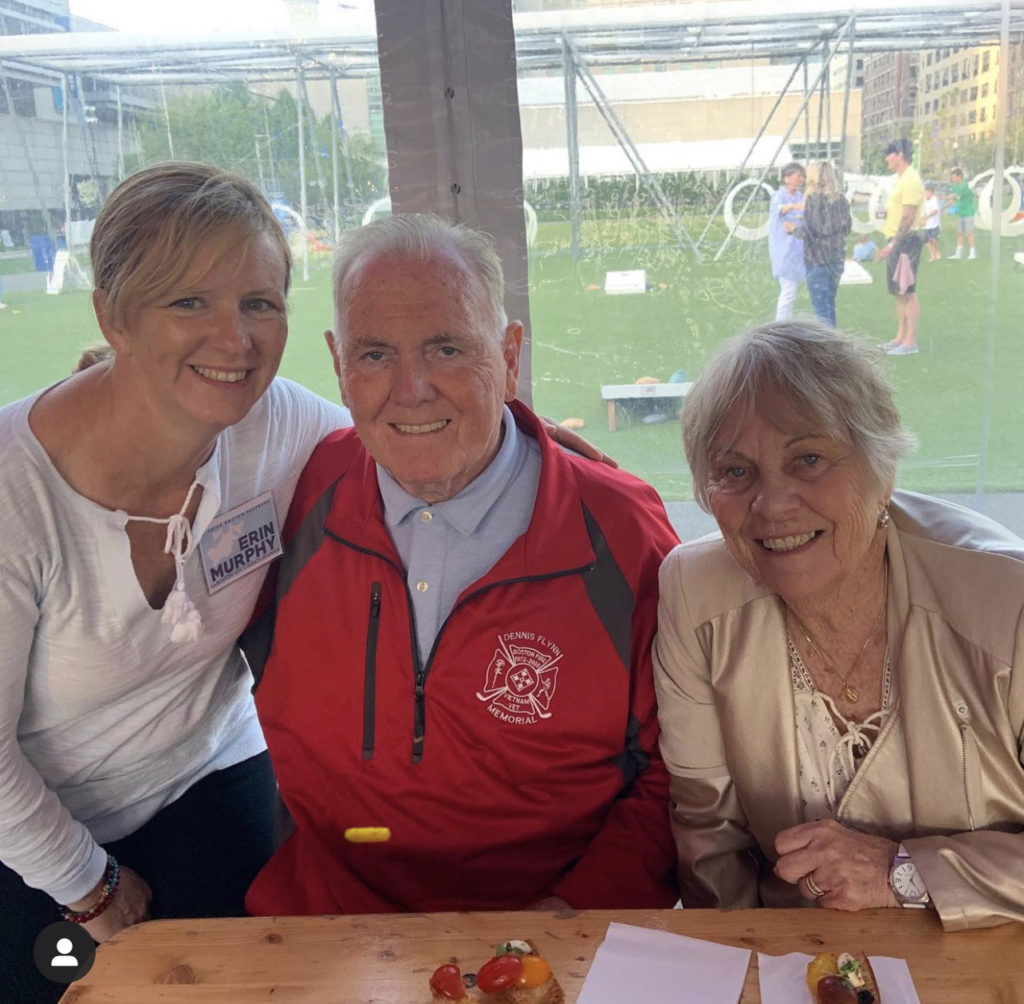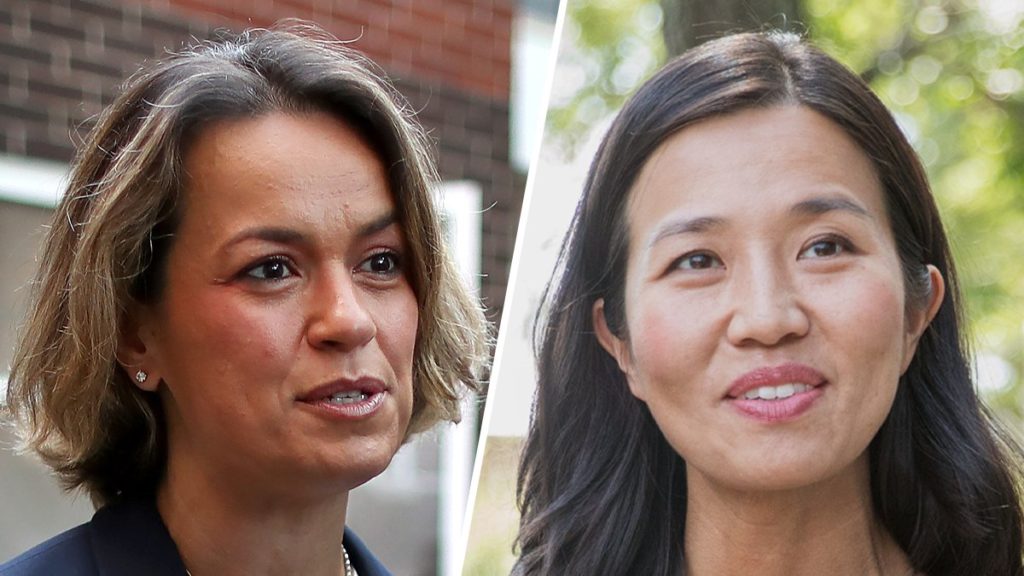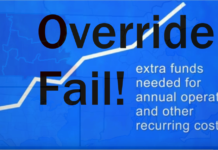by MIKE FREEDBERG
SPECIAL TO EASTBOSTON.COM
We are told that the election held in Boston on Tuesday was “historic.” I suppose it was.
Everything done by human beings is literally historic. That said, the “history” that observers say happened – electing a woman Mayor – did not happen alone.
Other things historic equally happened on Tuesday. Yet they began to happen in the 2019 City election, an event which yesterday confirmed.
I will discuss that later. But first, the news from the current election: Michele Wu, an at-large City Councilor who finished first in the 2019 election, defeated Annissa Essaibi George, an at-large Councilor who finished second in the at large 2019 decision.
That two at-large Councilors would face off in the November “final” was a first going back to 1959.
In every open-seat mayoral election beginning that year, the two finalists held offices other than at-large Councilor. Register of Deeds John Collins defeated state Senator John E. Powers. Then in 1967, Secretary of State Kevin White defeated School Committee member Louise day Hicks. In 1983, Councilor Ray Flynn (who was also at one time a state representative) defeated state Representative Mel King. In 1993, acting Mayor Tom Menino beat State Representative Jim Brett. And in 2013, state Representative Marty Walsh edged out Councilor John Connolly.
In 2021, one state representative did enter the field: Dr. Jon Santiago of the South End and Fenway. But Santiago garnered little support and withdrew his candidacy in July. This too was singular.
In every previous open-seat Mayoral election of our time, a state legislator was considered an instant contender once he or she joined the field.
Why not this time? I think it’s because the city’s voters have tended recently to view state government as something apart from the city’s particularisms. This narrowing of vision, on the part of city voters, is the really “historic” event going on with Boston voters and that the actual election only confirmed it.
So, what is it that is going on among Boston voters? As I see it, an enormous rearrangement of the city’s political conventions. Consider the following: before 2019, Boston elections were about personalities. There was general agreement about the issues facing the City – the school budget, union contract negotiations, the Downtown development, the effectiveness of police tactics, the oversight of city sports programs, and such like. In other words, the ordinary nuts and bolts of every municipal government.
During that now bygone time, councilors easily moved across every neighborhood, collegial with each other, celebrating neighborhood big-days, and similar public ceremonies — evincing a city in harmony at the governmental level at least. It is hard now to recall that as recently as 2018, every Councilor marched in the East Boston Columbus Day Parade and attended the local holiday lunch at Spinelli’s, just as they always had as far as I can recall. These were acts as uncontroversial as they were conventional.
Then, things changed – completely.
I don’t need to rehash what has happened to all that, except to note that in the 2018 Democratic Primary, two Black candidates, one for District attorney and one for Congress in the 7th Massachusetts District, ran explicitly tribal, racialist insurgencies which they ended up winning. In the 7th Congressional District, Ayanna Pressley defeated a 20-year incumbent, Mike Capuano, who would have been a committee chairman in the next Congress.
Some were tempted to say that Black candidates were simply representing: yet Boston had seen multiple candidacies by Black candidates – and for major offices, including District 1 city Councilor (Lydia Edwards), Mayor (Bruce Bolling) and District Attorney (Ralph Martin) — that took no such racialist stand. (I might also mention Edward Brooke’s two successful campaigns for United States Senate.)
So, what changed? Simply this: a narrowing of vision, a politics of introversion, a “saying the quiet part out loud,” as the current cant puts it.
There was no demand among the voters for this novel sort of campaign. Yet in 2018 they took hold. Why? Why the success of a politics of outspoken introversion? I would offer this explanation: we live in the age of social media, and social media is all about the self. Call it “selfie politics.” Look at Governor Baker who has made the selfie-with-voters experience. a major source of his popularity and appeal. At the other extreme, look at Donald Trump, who made insults on purpose – about as selfie (or self-absorbed) a politics as it’s possible to imagine –his hallmark of social media fascination.
What was initiated successfully by Ayanna Pressley and Rachael Rollins here in 2018 continued into Boston’s 2019 City election, in which a District Council candidate, a white woman running in a district the majority of whose voters are of color, was singled out for defeat – successfully — on the theory that “a white person cannot adequately represent a community of color.”
At the same time, the at-large candidates included immigrants and skin-color advocates in the 2018 manner.
I wrote at the time that the tone and tactics of the 2019 election signaled an end to the Boston I had known.
And so, we come to Tuesday’s “historic’ election, in which much – much, much – was made of Michelle Wu’s being a woman and “of color” and almost as much was made of Annissa Essaibi George’s being a woman of partially Arabic ancestry and thus also a ‘woman of color,” as if being “of color’ was the entry fee for being taken seriously as a candidate.
This is all too distracting, because Boston is becoming less “of color” as the City population increasingly is more composed of by highly paid, extremely educated folks who happen to be overwhelmingly white. It was to that constituency– the highly paid, obsessively educated, deeply corporate, and mostly white “progressives” – that Michelle Wu pitched her arguments.
And she did so early. It is imperative that in a major race to enter the field early, the earlier is the better. Essaibi George could not enter early. Mayor Walsh’s core support was hers; they had lived almost next door to one another. (Walsh moved in 2015, I think, to Dorchester Lower Mills.) By the time that Walsh was nominated and eventually confirmed for Labor Secretary, Wu had been a candidate for six months; donors inclined to back a challenger (as Wu then was) do not like to wait, and they had, in large number, already signed up for her by the time that Essaibi George put her chip on the table. Having done that, it was then unescapable that in 2019, she had finished second to Wu in the at-large contest and was thus by the numbers an underdog.
Essaibi George never made good those two disadvantages. Despite having an awesome message backed by mastery of the big issues – and especially of school matters – Essaibi George was more and more pinned into her core support while Wu took up the full corporate/progressive agenda, the mantle of ‘woman of color’ and her connection with Senator Elizabeth Warren, the grande dame of Massachusetts progressivism. Wu looked like a winner. And when you look like a winner, your opponent looks like something other than a winner, and that affects voters’ minds and donors’ checkbooks.
Thus the “historic’ election that is spoken of.

As I said at the outset, there as more than one history being made on Tuesday. I speak of Erin Murphy, who, won an at-large City Council seat.
This result, capturing the fourth seat, seemed out of place since Murphy hails from the city’s most powerful political neighborhood – Dorchester, where she finished first thanks to thorough backing from labor unions. Not that long ago, a Dorchester candidate of Irish ancestry and across-the-board labor backing would have swept the field.
Because that is what Boston was – and is no longer.
There will be no more down-to-the-wire candidacies like Murphy’s. She is the last. Of the 17 who sought an at-large council seat this year, only four were of Irish ancestry and none were of Italian ancestry. These populations, including labor union members, have been moving out of the city since the 1960s, mostly in search of school systems they have confidence in, as opposed to the lack of comfort they have of Boston’s schools. Today, they could not come back as empty-nesters current real estate market in Boston prohibits it.
Erin Murphy won because she was able to do what Mike Flaherty has done – and continues to do: win the favor of constituencies all across Boston who want a councilor who will work hard and does not have an out-of-reach agenda pursued at the expense basic constituent services that ensure a decent quality of life. There are enough such voters in 2021 Boston to ground a candidacy like Erin’s. But the odds of it are long and, I think, will be longer as the city becomes still more corporate, more estranged from unions, and more highly paid.
Because the only such folks who can afford to live in Boston for the foreseeable future are those who can chase grand plans of changing the world rather than playing what they think is small ball –retail politics.
— Mike Freedberg

















